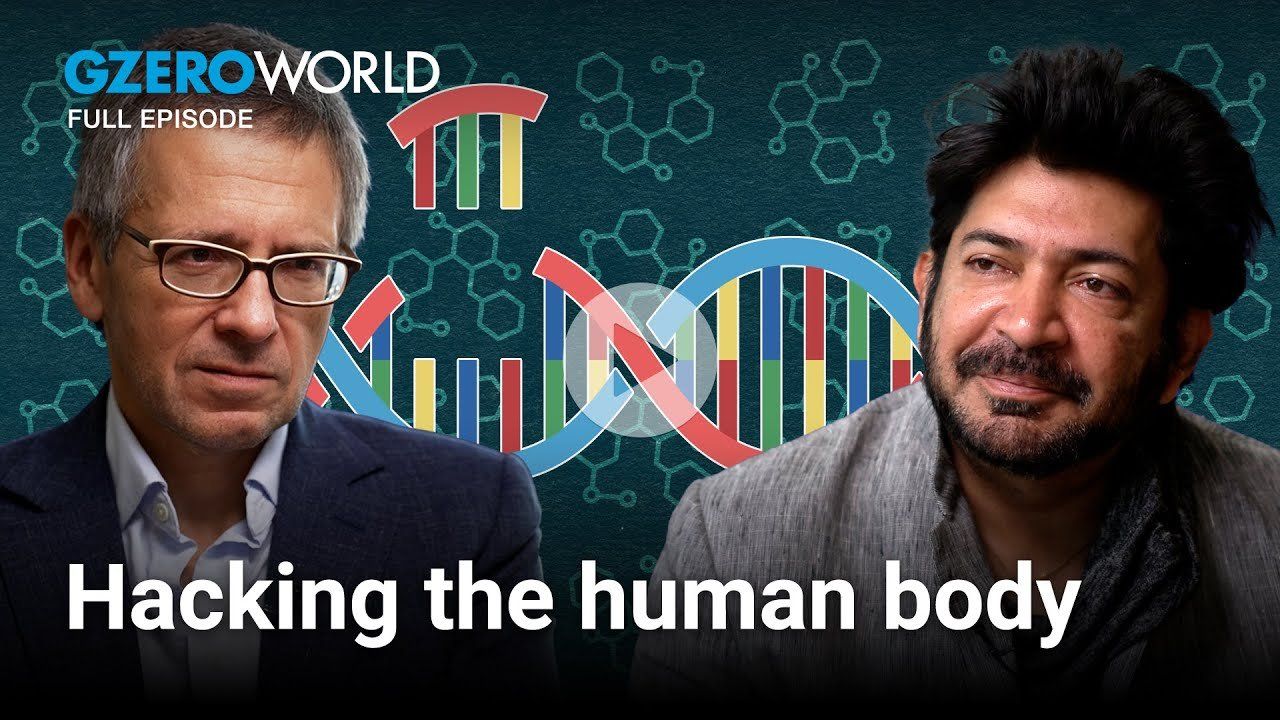
The benefits and risks of human enhancement using CRISPR, AI, and synthetic biology.
On GZERO World, Ian Bremmer sits down with physician and biologist Siddhartha Mukherjee to explore the recent advances, benefits, and risks of human enhancement with technology. Mukherjee’s latest book, “The Song of the Cell,” explores the history and medical science behind “the new humans,” a term he uses to describe people who have been altered in some way, initially for medical purposes and, potentially in the future, for enhancement. Bremmer and Mukherjee discuss the transformative impact of new tools like CRISPR gene-editing, AI-powered prosthetics, and brain implants that can help treat everything from movement disorders to depression.
“The idea of the human is changing,” Mukherjee says, "CRISPR, synthetic biology, prosthetic biology with AI, and cloning of individuals—that’s what I mean by the new human.”
These new medical technologies could radically improve our understanding of health and the human body, leading to a future of new medicines, cures for fatal diseases, expanded cognitive capabilities, and even communication with deceased loved ones. But there are also ethical implications to tinkering with human nature, including eugenics as a result of gene editing, the potential for AI to create toxic molecules, and the danger of real-time experimentation on the ecosystem with CRISPR. How do we balance the life-changing potential of biotech tools without changing the very nature of what it means to be human?
Watch GZERO World with Ian Bremmer every week on US public television (check local listings) and at gzeromedia.com/gzeroworld.
- You can clone your pet ›
- Is life better than ever for the human race? ›
- Steven Pinker shares his "relentless optimism" about human progress ›
- What is CRISPR? Gene editing pioneer Jennifer Doudna explains ›
- CRISPR gene editing and the human race ›
- CRISPR gene-editing tech should have limits, says Nobel laureate ... ›
- Yuval Noah Harari: AI is a “social weapon of mass destruction” to humanity - GZERO Media ›
- Yuval Noah Harari explains why the world isn't fair (but could be) - GZERO Media ›